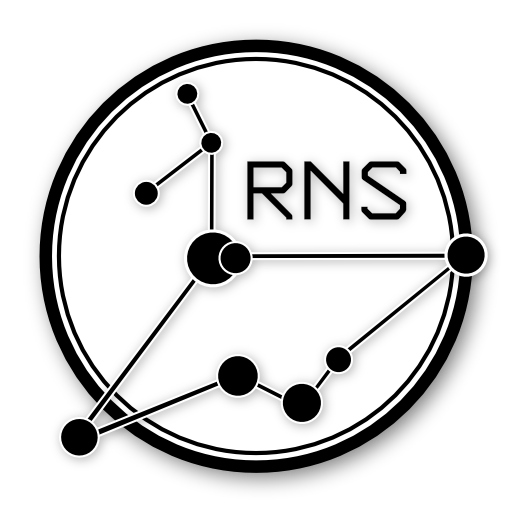Reticulums Role in Enabling Bitcoin Payments in Internet-Restricted Areas
Reticulum, Bitcoin, Internet-Restricted Areas, Low-Bandwidth Communication, LoRa, Decentralized Networks, Censorship Resistance
Reticulums Role in Enabling Bitcoin Payments in Internet-Restricted Areas

Driving Factors:
Reticulum provides a decentralized, hardware-agnostic networking stack designed for communication over low-bandwidth and high-latency environments. This makes it an essential tool for enabling Bitcoin transactions in regions with restricted internet access or under censorship. By leveraging Reticulum’s encrypted, resilient, and autonomous communication capabilities, individuals can engage in peer-to-peer financial transactions without relying on centralized infrastructure.
Worth Considering:
-
Overview of Reticulum:
- A lightweight, open-source networking stack for minimal infrastructure.
- Operates independently of centralized control, enabling anonymous and secure communications.
-
Key Features Relevant to Bitcoin Payments:
- Strong encryption (AES and ECC) ensures secure and private communication.
- Operates on devices as inexpensive as Raspberry Pi with LoRa radios, requiring only 5 bits per second of bandwidth.
- Allows routing over multiple nodes to bridge gaps in connectivity.
- No central authority or licensing required for network participation.
-
Bitcoin Use Case:
- Using Reticulum, a user in an internet-restricted area can connect a LoRa-enabled Raspberry Pi to establish a Reticulum network.
- Bitcoin payments are sent over this network using encrypted messages routed to a nearby Bitcoin node or an off-grid Lightning Network hub.
- Once connected, transactions can be finalized and broadcasted globally when the node regains internet access.
-
Real-World Scenarios:
- Reticulum can bypass network blocks to facilitate Bitcoin transactions for aid and resources.
- Establishes financial independence in remote regions with limited infrastructure.
- Enables monetary transactions in regimes with strict controls over financial systems.
Decentralized and Permissionless Networking: Reticulum allows users to create independent, decentralized networks without the need for centralized control or infrastructure. This aligns with Bitcoin’s decentralized ethos, enabling peer-to-peer transactions without reliance on traditional internet service providers.
Low-Bandwidth Compatibility: Reticulum can function reliably over links with as little as 5 bits per second, making it suitable for low-bandwidth communication channels like radio, LoRa, or even serial lines. This is crucial for areas where high-speed internet is unavailable.
Encryption and Security: Reticulum employs strong encryption by default, using elliptic curve cryptography and AES for secure communication. This ensures that Bitcoin transactions remain secure, even over unconventional communication channels.
Hardware Agnosticism: Reticulum can operate over a wide range of physical mediums, including radio, WiFi, and wired Ethernet. This flexibility allows it to be deployed in diverse environments, from rural areas to disaster zones, where traditional internet infrastructure is lacking.
Initiator Anonymity: Reticulum supports anonymous communication, which can be beneficial for users in regions where financial transactions are monitored or restricted. This feature complements Bitcoin’s pseudonymous nature, providing an additional layer of privacy.
Decentralized Networking: Reticulum allows users to create independent networks without centralized control, aligning with Bitcoin’s decentralized model.
Low-Bandwidth Operation: Reticulum can function with as little as 5 bits per second, making it suitable for areas with limited connectivity.
Strong Encryption: Reticulum uses elliptic curve cryptography and AES to secure communications, ensuring the safety of Bitcoin transactions.
Hardware Flexibility: Reticulum can operate over various physical mediums, including radio and LoRa, enabling deployment in diverse environments.
Anonymity: Reticulum supports anonymous communication, adding an extra layer of privacy for Bitcoin users in restricted regions.
Connections: → [ID1] : Reticulum’s ability to operate over low-bandwidth channels (5 bits per second) makes it ideal for Bitcoin transactions in areas with limited connectivity. → [ID2] : The use of elliptic curve cryptography and AES in Reticulum ensures that Bitcoin transactions remain secure, even over unconventional communication mediums. → [ID3] : Reticulum’s hardware-agnostic design allows it to be deployed in diverse environments, enabling Bitcoin payments in remote or internet-restricted areas. → [ID4] : The decentralized nature of Reticulum aligns with Bitcoin’s peer-to-peer model, eliminating the need for centralized intermediaries in financial transactions.
Connections:
→ [41]: Reticulum’s hardware-agnostic, encrypted framework makes it adaptable to tools like LoRa and Raspberry Pi for decentralized Bitcoin payments.
→ [41]: Its ability to operate without centralized approval aligns with Bitcoin’s permissionless and censorship-resistant ethos.
Source:
Page: Reticulum Overview and Documentation
My Careful Thoughts About Reticulum:
Reticulum’s design prioritizes privacy, decentralization, and ease of use, which makes it an excellent complement to Bitcoin in regions with restricted internet access. Its focus on encryption and low-cost deployment ensures secure communication, while its ability to form autonomous, interconnected networks mirrors Bitcoin’s decentralized structure.
This combination of technologies creates a resilient financial infrastructure that enables peer-to-peer transactions under adverse conditions. By bridging the gap between digital currencies and low-tech communication mediums, Reticulum can support financial inclusion for individuals and communities that have been excluded from traditional systems.
Closing view:
Reticulum is a transformative tool for enabling Bitcoin transactions in internet-restricted areas. Its low-cost deployment, encryption capabilities, and decentralized nature empower users to transact securely and anonymously in environments where internet infrastructure is limited or censored.
Action Steps To Work On With Reticulum Stack - Roadmap:
- Develop step-by-step guides to integrate Bitcoin wallets with Reticulum-based networks.
- Pilot Reticulum deployments in rural areas or regions with internet restrictions.
- Educate communities on setting up and maintaining Reticulum nodes for secure financial independence.
Understanding Reticulum Network
Invitation for Feedback:
How can Reticulum’s functionality be further optimized for Bitcoin transactions in low-bandwidth environments? Your insights can help refine this technology for broader adoption.